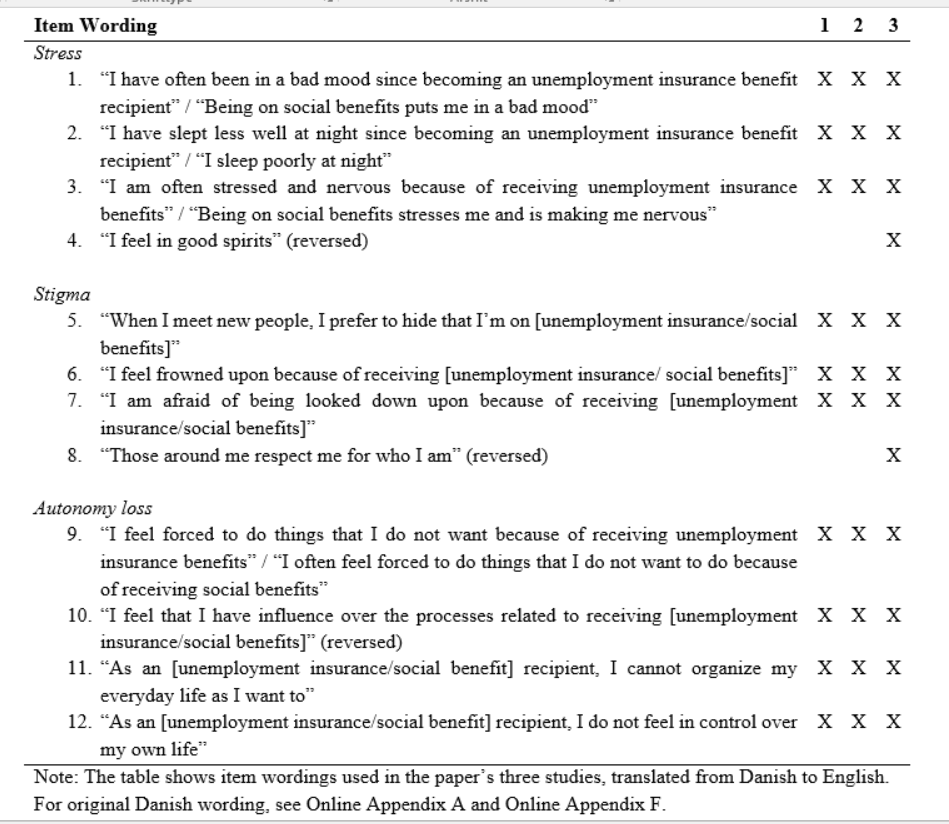
1/10: Do state actions affect the #psych #wellbeing of govt benefit recipients? In a new #openaccess @JPART1991 paper, @MartinBaekgaard, @SassMikkelsen, @JonasKrogh and I investigate this in the context of Danish #unemployment benefits. Short answer: Yes! academic.oup.com/jpart/advance-…
2/10: To test the question, we rely on survey, quasi, & natural experimental evidence, utilizing the fact that in March last year, as part of the #COVID19dk #lockdown, the usually strict active #labormarket policies of DK were suddenly suspended -> benefits became unconditional.
3/10: In other words, from 1 day to the next, unemployed ppl did no longer have to comply with a lot of demands (job training, work requirements, mandatory control meetings with caseworkers, documentation requirements, etc.) to receive benefits. What happened to their well-being?
4/10: In study 1, which we made in collaboration with the @3F_Fagforening unemployment insurance fund, we find that experimentally increasing the awareness of these changes leads to reduced feelings of #stress and #stigma + an increased sense of #autonomy over people's own lives. 



5/10: In studies 2-3, we use surveys, collected right before and after the change. Using this quasi/natural experimental data, we do not find significant changes in stigma but we do find reduced stress & increased sense of autonomy from right before to right after the change.
6/10: The findings are remarkable given the context: Demands were lifted because of a pandemic & lockdown, which, according to other research, led to *reduced* well-being among the general public, e.g., this study from Kim Sønderskov, @ThistedPeter et al: cambridge.org/core/journals/…
7/10: There are many reasons why policymakers should care abt these results. One is compassion but moreover, low well-being harms ppl's job search and chances of reemployment, and it risks pushing ppl away from rest of society -> democratic costs, cf. work of @jbsoss and others.
8/10: The good news is that although policymakers can't, of course, make it a pleasant experience to lose one's job, the psychological well-being of benefit recipients *is* to some extent within the control of them and other state actors.
9/10: In the paper, we draw on insightful works of a lot of great scholars, including @pamela_herd, @donmoyn, @CassSunstein, @jbsoss, @sanfordschram, @povertyscholar, @erikgahner, @dsznycer, @bcburden, @FHattke, @JanneKalucza, @azfarnisar, @RikPeeters2, and many many others.
10/10: I thought I had content for ten tweets but this was an error :P But that gives me an occasion to highlight, once again, that the paper is open access and that the accepted manuscript can be found here: academic.oup.com/jpart/advance-…
• • •
Missing some Tweet in this thread? You can try to
force a refresh


